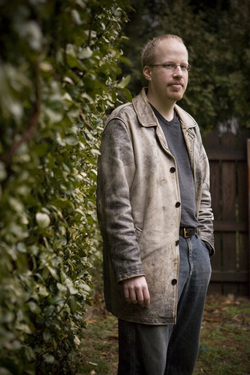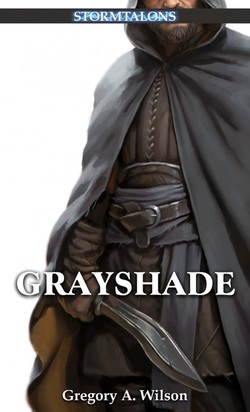
I’ve been awfully busy this year. Besides the arrival of my son—who is a bit of a time sink—I’ve had two books come out, in addition to my normal professional life. The bad news is that, as we all know, time is a finite resource, one which I had precious little of to begin with; adding more things to do just divides the available pie further. The good news is I’ve learned some things along the way—and found help in surprising places.
My promotional activities basically take two forms: the first was my online presence, conducted through social media and my Twitch channel, where I’ve been broadcasting games and commentary with a focus on story and narrative since 2012. I’ve spoken about that elsewhere, so here I’ll focus on the second set of promotional activities: the offline world, manifested in conferences, conventions, workshops, and the like. I’ve done a decent number of these over the years, but in 2016 I took it up a notch: twelve cons in all, from Seattle to Toronto to Orlando to Ottawa and many places in between, ranging from large events with tens of thousands of attendees to ones with a few hundred. The feel of these differ; the Comic Cons, for instance, have a great deal of energy and offer a lot of exposure, but don’t necessarily much focus on writing per se, although there’s interest in a good story when coupled with good artwork. On the other hand, more traditional conferences with a literary focus like CanCon or Readercon are smaller, but the interest level in the attending authors tends to be higher, as many of the attendees are aspiring authors (or at least avid readers) themselves. And finally there are the gaming conventions with strong writing tracks, like Origins or Gen Con, which can often be a good blend of energy and author interest.
Two takeaway lessons from this experience: first, have product available, even if the con in question isn’t a big sales driver. Word of mouth is powerful, and under the right circumstances can open professional doors. I did a reading with Ed Greenwood years ago at Ad Astra, and after doing a couple more panels and the like, had a short story in a collection edited by Ed and Gabrielle Harbowy. Later, Ed invited me to take part in his new publishing venture; that eventually became The Ed Greenwood Group, and led to a contract for my Gray Assassin Trilogy, the first book of which was just released. None of that would have happened without the initial face to face contact, and being able to hand Ed something (“here’s the story I just read, in case you’re interested”) helped in that regard. Beyond having product, you need to be prepared: if you seem to know what you’re talking about on a panel, it’s much more likely that people in the audience or fellow panelists will want to know more about you, and to check out the product you’ve got.
Second, be aware of what you’re doing in that environment. Yes, you’re building exposure, creating buzz, and networking with other editors and authors—but demonstrating a general interest in those people before immediately turning to your own work is important. Everyone at these events knows that everyone else is working on something, and that discussion will almost always happen at some point during a social interaction. But no one wants to have someone doing the equivalent of waving a business card as they come up to a group of friends chatting about other things. If you’re genuinely interested in what your colleagues are doing—and you should be, because you can learn a great deal from everyone, even if they’re not writing in your particular subgenre—and demonstrate that interest, the opportunity will eventually come to talk about your own work. And when the opportunity does come, have something ready to say—not “oh, uh, yeah, I’m working on a book. Yep. It’s fantasy,” but rather: “Yes, I’m working on a dark fantasy, about an assassin who kills in the name of his god—kind of Jason Bourne meets Assassin’s Apprentice. It’s the first in a series, and I’m pretty happy with how it’s going.” Now you’ve given the person something specific to latch on to, and if they’re an agent or editor (or know an agent or editor—and all of us do) who is looking for something like that, you’ve got a foot in the door.
The most important thing in all of this is to understand your professional status and how best to deploy it. Yes, you want to be cordial, polite, and engaging—you want to be friendly with and interested in others, not just for its own sake but because everyone likes nice people who seem to like them. But you also want to recognize that in this setting, you’re a professional author (or an author with professional aspirations), and that means you’re a potential colleague, not just a fan. In my case, I had an academic background which helped me to feel more settled when chatting with these giants in the speculative fiction field; internally it was hard not to be kind of awestruck (“holy cow, Ed freaking Greenwood!”), but externally I (hopefully successfully) tried to play it reasonably cool, positioning myself as a person with professional credentials who was interested in deepening my involvement in the field. Outward presentation does make a difference, in this world like any other.
Obviously an online presence is critical, and it’s important to maintain and develop such a presence over time. But the offline, face to face contacts are still critical, and can help distinguish you in the minds of other professionals in the field. That it also happens to be exciting, fun, and sometimes an amazing (Ed freaking Greenwood!) experience is just icing on the cake.

He is a regular panelist at conferences across the country and is a member of the Gen Con Writers’ Symposium, the Origins Library, Codex, Backspace, and several other author groups on and offline. On other related fronts, he did character work and flavor text for the hit fantasy card game Ascension: Chronicle of the Godslayer, and along with fellow speculative fiction author Brad Beaulieu is the co-host of the critically-acclaimed podcast Speculate! The Podcast for Writers, Readers and Fans, a show which discusses (and interviews the creators and illustrators of) speculative fiction of all sorts and types. He lives with his wife Clea and daughter Senavene–named at his wife’s urging for a character in The Third Sign, for which his daughter seems to have forgiven him–in Riverdale, NY.
 RSS Feed
RSS Feed
